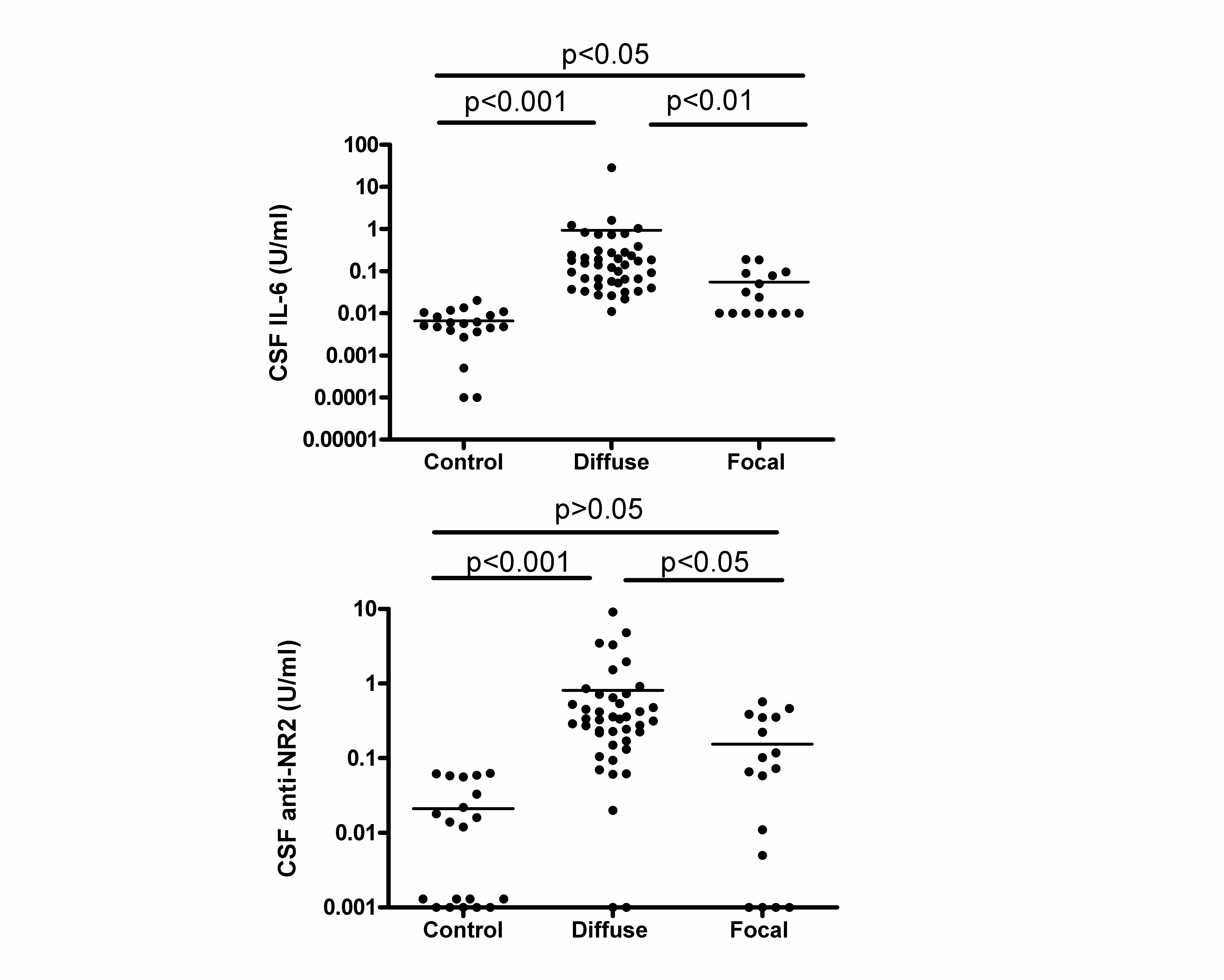Session Information
Session Type: Abstract Submissions (ACR)
Background/Purpose: Neuropsychiatric manifestations occur in approximately one-half of patients with SLE and may cause substantial impairment of quality of life as well as disability. Among a variety of neuropsychiatric manifestations in SLE, acute confusional state (ACS) in diffuse psychiatric/neuropsychological syndromes (diffuse NP-SLE) is the most serious one. Of note, cerebrospinal fluid (CSF) IL-6 was found to be elevated in patients with NP-SLE, including diffuse NP-SLE and focal NP-SLE. Moreover, recent studies have demonstrated that CSF anti-NMDA receptor NR2 antibodies (anti-NR2) are associated with diffuse NP-SLE. However, the relationship of CSF IL-6 and anti-NR2 with the severity of NP-SLE remains uncertain. The current studies examined whether CSF IL-6 and ant-NR2 might be surrogate markers for the severity of NP-SLE.
Methods: CSF samples were obtained from 62 SLE patients who satisfied the 1982 ACR revised criteria when they showed active neuropsychiatric manifestations (44 patients with diffuse NP-SLE and 18 patients with neurologic syndromes [focal NP-SLE]) as well as from 20 control patients with non-inflammatory neurological diseases. CSF IL-6 was quantitated by bioassay using IL-6 dependent cell line MH60.BSF2.CSF IgG anti-NR2 were measured by ELISA using synthetic peptide containing the extracellular ligand-binding domain of NR2.
Results: CSF IL-6 was significantly elevated in diffuse NP-SLE compared with that in focal NP-SLE or in control patients. CSF anti-NR2 were also significantly elevated in diffuse NP-SLE compared with those in focal NP-SLE or in control patients (figure). Moreover, CSF IL-6 levels as well as CSF anti-NR2 were also significantly higher in ACS than in diffuse NP-SLE other than ACS (cognitive disorder, mood disorder, anxiety disorder and psychosis). Finally, CSF IL-6 levels were significantly correlated with CSF anti-NR2 in patients with NP-SLE (r=0.3732, p=0.0054).
Conclusion: These results demonstrate that CSF IL-6 as well as CSF anti-NR2 were most markedly elevated in ACS. The data therefore indicate that CSF IL-6 and anti-NR2 might be surrogate markers for the disease severity of NP-SLE. Finally, the positive correlation between CSF IL-6 and anti-NR2 suggest that anti-NR2 might be involved in the production of IL-6 within the CNS in SLE.
Disclosure:
S. Hirohata,
None;
Y. Arinuma,
None;
E. Ogawa,
None.
« Back to 2012 ACR/ARHP Annual Meeting
ACR Meeting Abstracts - https://acrabstracts.org/abstract/cerebrospinal-fluid-il-6-and-anti-nmda-receptor-nr2-antibodies-as-surrogate-markers-for-cns-disease-severity-in-sle/

